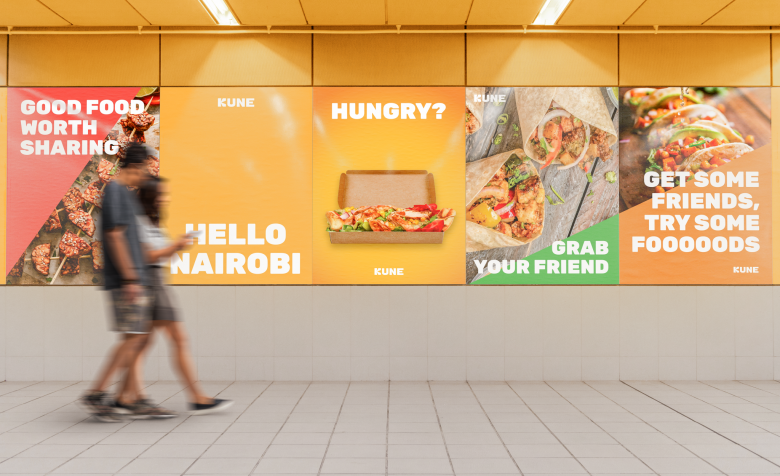A Recipe for Failure? Inside Kune Food's Sudden Closure

Udokanma Georgewill
June 7, 2025

To eat well without spending too much is a daily headache for many people in Nairobi and across Kenya. Lunch choices seem pretty slim, from cheap street foods that might not sit right with your guts, to a proper restaurant meal that could even cost about half a day’s wages, or just staying hungry the entire day.
Robin Reecht, a French entrepreneur who had lived in Kenya for many years, watched this struggle daily. He believed good food shouldn't cost a fortune. In 2020, he launched Kune Foods to deliver fresh, tasty meals for just $3.“It’s impossible because either you go to the street and you eat street food, which is cheap but with not-so-good quality, or you order on Uber Eats, Glovo, or Jumia, where you get quality but you have to pay at least $10,” he told TechCrunch.
He raised $1 million to push this idea in 2021. They built industrial kitchens, hired chefs, and rolled out delivery bikes. By mid-2021, over 6000 regular customers and 100 companies relied on Kune for affordable lunches. For a moment, Robin seemed to have solved one of Nairobi’s oldest problems.
The twist to this food-tech disruption
Like other revolutions, running an innovation in the food industry proved harder than expected. A few problems emerged with the sustainability of Kune Foods by early 2022. First, the global economy soured, and investors halted funding for startups. And without cash, the company’s expansion plans froze. Then suddenly, crop prices exploded, making a 90-shilling meal cost Kune over 150 shillings. The founder, Robin, laid bare the math: "We sold more than 55,000 meals... But at $3 per meal, it just wasn’t enough." Every meal sold deepened their losses. If they raised prices, they’d betray their mission; if they kept prices low, they’d bleed money.
On June 10, 2022, Robin posted a raw message on LinkedIn, "Sad day. Kune Food closed down today." He explained the double blow, "With the current economic downturn and investment markets tightening up, we were unable to raise our next round. Coupled with rising food costs deteriorating our margins, we just couldn’t keep going." His apology to employees was heartfelt: "You put your heart and soul into building the Kune that so many people loved." He also thanked early investors who backed him when it was just himself and a chef delivering food on foot. Then, he deleted the post. That deletion sparked confusion; some saw it as dodging accountability, others as a moment of grief.
The controversy around closure
For some time, Kune’s closure sparked public debate. Robin blamed inflation and failure to secure $3.5 million in growth funds for Kune’s failure. Inflation eroded Kune’s gross margin from 48 to just five per cent. That sounds a bit excessive, but it is not a sufficient explanation for the outcome even if it were true. Soon after Robin deleted his emotional LinkedIn post announcing the closure, critics questioned his leadership. Former employees anonymously told WeeTracker the company grew too fast without fixing fundamental problems: "We’d run out of packaging while ingredients spoiled." Meanwhile, social media buzzed with accusations of "foreign founders misunderstanding Africa" after Robin (the French national) called Kenyan food "too expensive" in interviews. The discussion brought to light the conflicts in Africa's startup scene between lavish scaling and practical sustainability.
The real losses
Kune’s shutdown left a real wreckage, as the founder highlighted, 90 employees, comprising chefs, riders, and packers, lost their income overnight in Kenya’s tough job market. These were people who also believed in bringing affordable food to everyday Kenyans. Suddenly, they were struggling to feed their own families. That reliable, affordable lunch vanished from their daily routines. For many, it wasn’t about food. It was about predictability in tight budgets.
After all was said, Kune proved something important: Kenyans desperately want good, cheap food delivered. But it also showed that $3 meals can’t survive real-world costs and economic storms. Robin’s archived post admitted that even selling 55,000 meals at $3 wasn’t sustainable. The city's lunch battle continues until someone cracks the code of true affordability, balancing fair prices, living wages, and realistic costs.
Read next: Case Study: Why Nigerian EdTech Startup Edukoya Shut Down Despite Early Success


